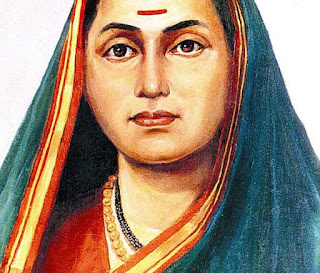Born in 1831 in Maharashtra, India, Savitribai faced numerous challenges and obstacles as a woman of the Brahmin caste in a deeply patriarchal and hierarchical society. However, she was determined to overcome these barriers and use her talents and skills to make a positive difference in the world.
With the support of her husband, Jyotirao Phule, Savitribai became a pioneering advocate for women's education, co-founding India's first school for girls in 1848. She served as the school's first female teacher, inspiring countless young women to pursue their dreams and aspirations despite the prevailing social norms and prejudices.
In addition to her work as an educator and social reformer, Savitribai was also a gifted poet who used her writing to challenge injustice, oppression, and inequality. Her poetry, which often dealt with themes of caste discrimination, gender inequality, and social justice, continues to resonate with readers today as a powerful expression of hope, courage, and resistance.
One of her most famous poems, "Go, Get Education," urges women to break free from the chains of ignorance and seek knowledge and enlightenment. The poem remains a timeless inspiration for women and girls around the world, reminding them that education is a powerful tool for liberation and empowerment.
Savitribai's literary legacy has been widely celebrated and recognized, with numerous awards and accolades bestowed upon her in India and beyond. Her work as a social reformer and educator has also had a profound impact on the world, inspiring generations of activists and advocates to fight for equality, justice, and human rights.
As we commemorate the death anniversary of this remarkable woman, we honor her life and legacy as a pioneer in literature and social reform, whose words and deeds continue to inspire and guide us today.






No comments:
Post a Comment